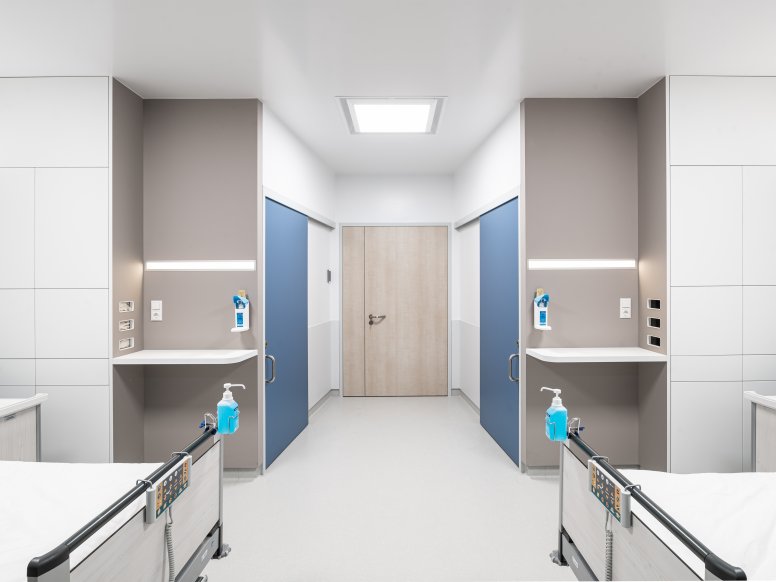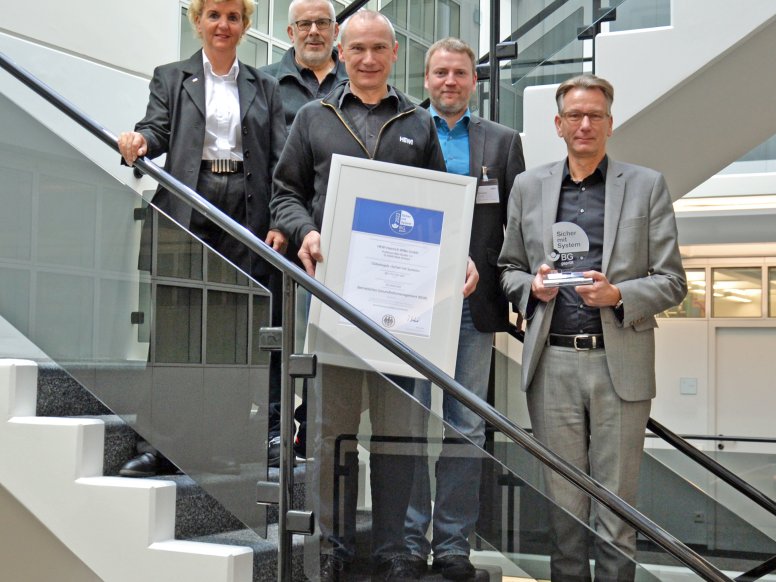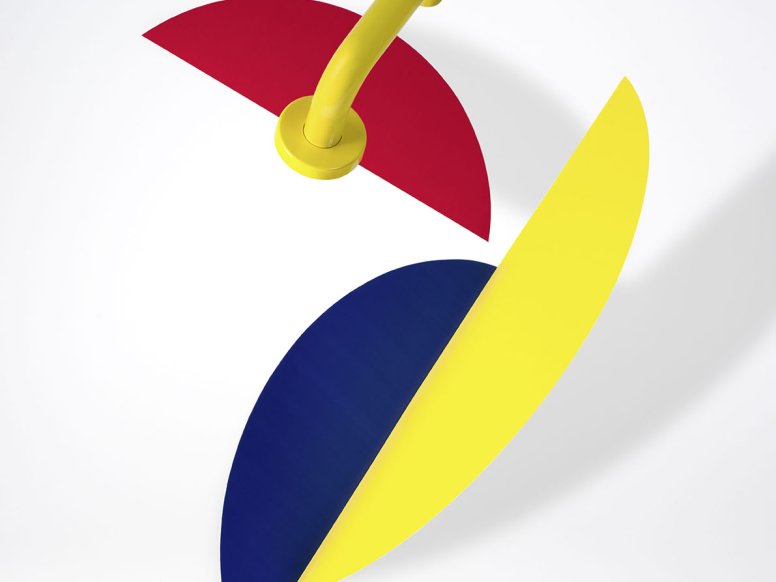HEWI MAG / NEWS
HEWI Innovation Challenge | Network Waldeck-Frankenberg
A day full of new perspectives, energetic work phases and creative sessions: new ideas on the subject of accessibility bubbled up at the HEWI Innovation Challenge! Together with the Waldeck-Frankenberg Career Network, HEWI gave students from the most diverse specialist areas the opportunity to combine study and practice and, with the aid of the Design Thinking method, to work on a question in the context of barrier-free bathroom solutions.
Network Waldeck-Frankenberg is a regional career network. The aim is to network young talents with companies in the region and draw attention to career opportunities in our home country. In addition, Network sees itself as a source of ideas for rural areas and works to further strengthen the innovative power of Waldeck-Frankenberg.
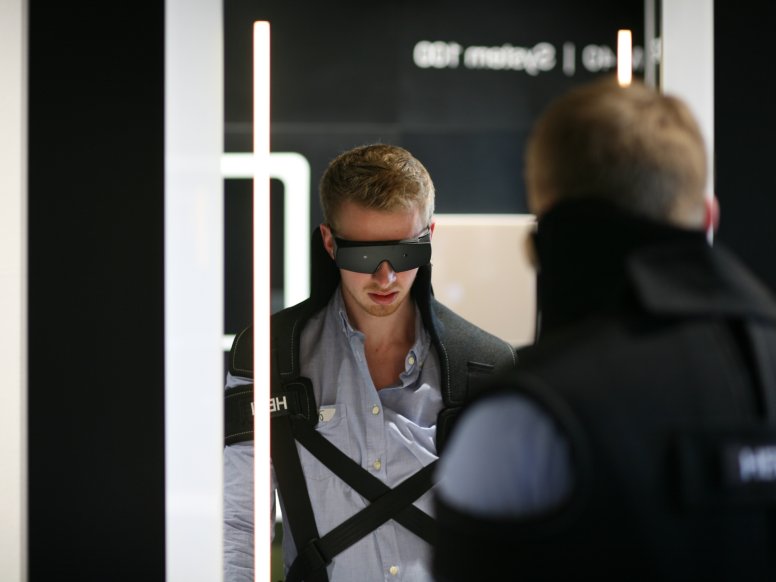
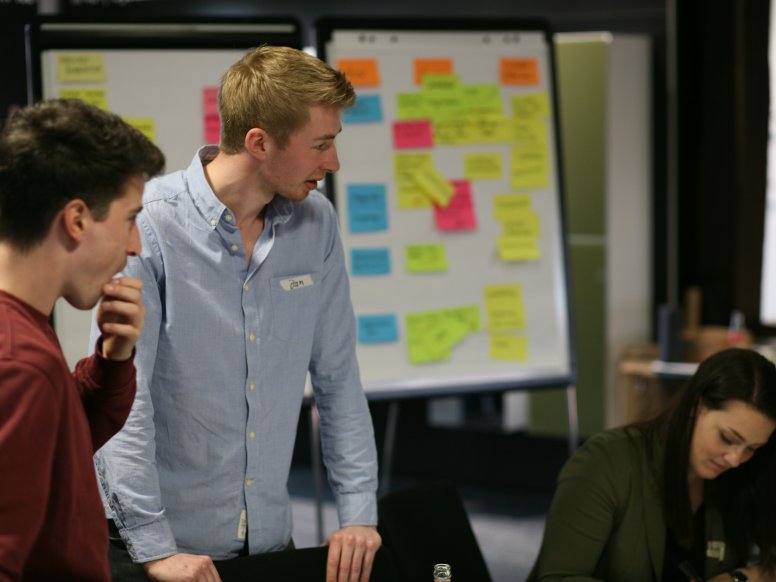
"Put your talent to the test and contribute your professional expertise and experience! This was the motto under which ten students from the faculties of architecture, design, business administration, IT and mechanical engineering gathered at HEWI's production site in Bad Arolsen.
Together with HEWI experts from the departments Product Management, Concept Development and Experimental Development and Design Thinking Coaches from Network Waldeck-Frankenberg, the group started the HEWI Innovation Challenge with a tour of the production halls. All participants then went to the HEWI training center in Wetterburg, where the actual workshop took place.
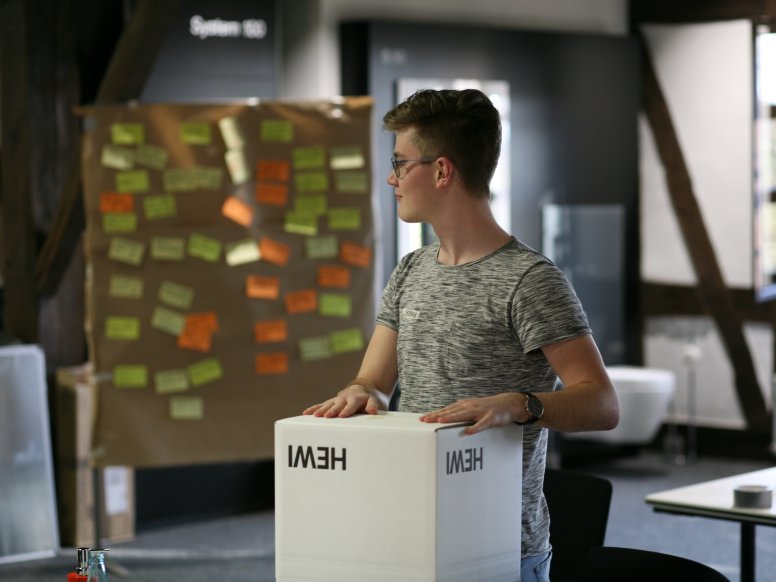
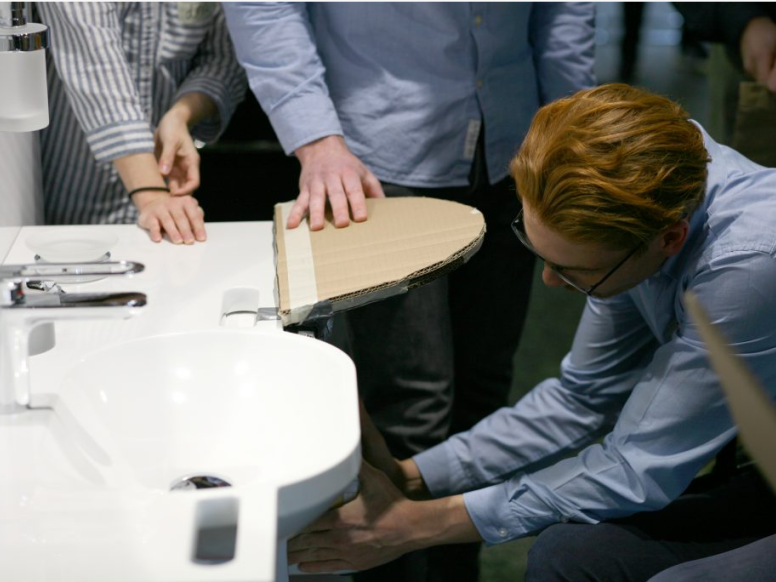
As an introduction to the topic of "barrier-free bathroom furnishings" and the subsequent problem analysis, the students had the opportunity to interview a geriatric nurse and little Emely and her parents. Emely is nine years old. She is paraplegic and dependent on a wheelchair. She and her parents spoke openly with the students about the challenges they face in their everyday lives.
The insights gained by the students from the discussions were used to concretise the problem and develop initial ideas for solutions. Here the needs of Emely and the different professional perspectives of all team members were incorporated.
The second part of the workshop was devoted to the concretization of the ideas. The know-how of the interdisciplinary study subjects could be used in a bundled way to build a first prototype, which made the students' ideas tangible. Parallel to this, each group prepared a short presentation which was presented to HEWI's management at the end.
